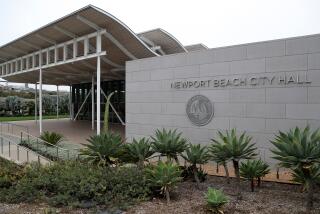Stockton bankruptcy ruling preserves city pensions

A federal bankruptcy judge approved the city of Stockton’s bankruptcy recovery plan Thursday and sidestepped challenges to its workers’ pensions that could have threatened municipal retirement plans across the state in the years ahead.
Stockton’s plan slashes city spending, cuts salaries and eliminates jobs — but preserves worker pensions. Also, companies owed money by the city will get back only a fraction of what they’re due.
The case was being closely watched after the judge ruled this month that the city’s payments to the California Public Employees’ Retirement System could be cut in bankruptcy, just like any other obligation.
If Judge Christopher M. Klein had rejected Stockton’s plan and forced the city to reduce its payments to CalPERS, it could have opened the door for other financially ailing cities struggling with escalating pension costs to follow suit.
The decision was good news for public workers and retirees statewide, said CalPERS Chief Executive Anne Stausboll, whose agency fought any pension cuts as part of the Stockton bankruptcy proceedings.
“We will continue to champion the integrity and soundness of public pensions to protect the benefits that were promised to the active and retired public employees,” she said.
Pension reformers were not happy. They criticized the decision, saying the city’s rising pension costs would continue to take money from essential services and keep Stockton on the brink of a second insolvency.
“The city of Stockton missed an opportunity to use a powerful tool to save their city’s finances that’s only available in Bankruptcy Court,” said Dan Pellissier, president of California Pension Reform.
Stockton officials had argued that it was not possible to cut pensions or to create another retirement plan for city employees. They said employees would leave Stockton for other cities offering retirement benefits through CalPERS.
CalPERS had said that if Stockton left the state retirement system, the city would immediately owe it $1.6 billion — far more than the city’s current bill to the pension plan.
On Thursday, Klein said the city’s 1,400 workers and 2,500 retirees had already taken enough hits in the bankruptcy.
Stockton’s salaries and benefits for workers had been higher than those at other cities, the judge said, but workers had agreed after the bankruptcy filing to take big cuts, including eliminating the free medical care they received in retirement.
“It would be no simple task to go back,” Klein said, “and redo the pensions.”
He added, “This plan, I’m persuaded, is the best that can be done.”
Klein said that rejecting the plan after two years in court and tens of millions of dollars in legal and other fees would have put the case back to “Square One.”
Stockton’s plan sharply cuts payments to its creditors, including Franklin Templeton, an investment firm that holds more than $36 million in bonds the city used to borrow money. Franklin had asked Klein to reject the city’s plan so that it could get more of its money back.
Franklin’s financial expert used the city’s own projections to show that it would soon be paying CalPERS nearly 19% of general tax revenue — up from 11% today.
Franklin had argued that the increasing cost of pensions would put the city at risk of another bankruptcy. But Klein said Thursday that Stockton’s plan for paying creditors over the years was adequate and passed all legal tests.
City Manager Kurt Wilson said after the ruling that it “confirms that Stockton is fiscally stable and on the road to recovery.”
“We are going to have stability that impacts our ability to attract and retain employees,” he said.
It was a turnaround from Klein’s oral ruling Oct. 1, when he said public workers’ pensions were not sacrosanct and could be reduced in a bankruptcy.
“It looked like he was telling cities they had an easy offramp” to rising pension costs, said Harvey Leiderman, a lawyer at Reed Smith who advises CalPERS and other retirement funds. “Now he’s shut down that offramp.”
Klein explained in court what happens when employees and retirees are given equal standing in bankruptcy compared with all other creditors. The workers and retirees then far outnumber the other creditors and would have the power to veto any decision that is not favorable to them.
“You’ll never come out of bankruptcy, and that’s what he recognized,” said Leiderman, describing Klein’s decision.
In recent years, pensions have been a political hot potato in Stockton. Overly large pensions approved by city officials for employees are among the reasons that Stockton found it could no longer pay its bills, critics say.
Stockton’s promised pensions for police and fire employees are some of the highest in the state, according to an analysis by Franklin’s expert. The city is now paying the equivalent of 41% of police salaries to CalPERS for future pensions — an amount that will increase to 57% in five years.
As a result, the city will face continued challenges in the years ahead.
“They’re betting on a rosy scenario for years to come, said Pellissier of California Pension Reform. “Only time can tell whether the city of Stockton can continue to provide services without relief from its unsustainable pension obligations.”
Twitter: @marclifsher
Twitter: @melodypetersen
Lifsher reported from Sacramento and Petersen from Los Angeles.








